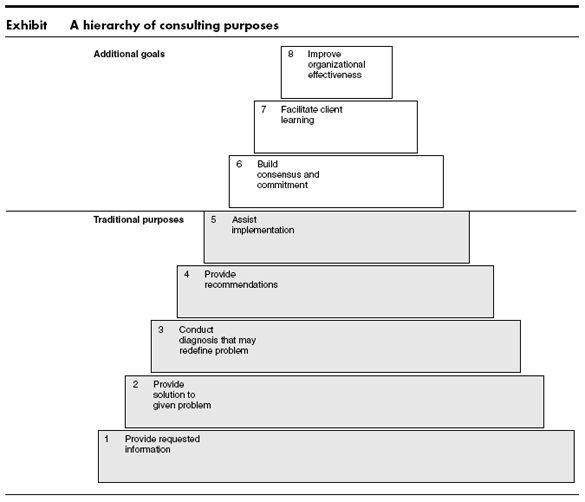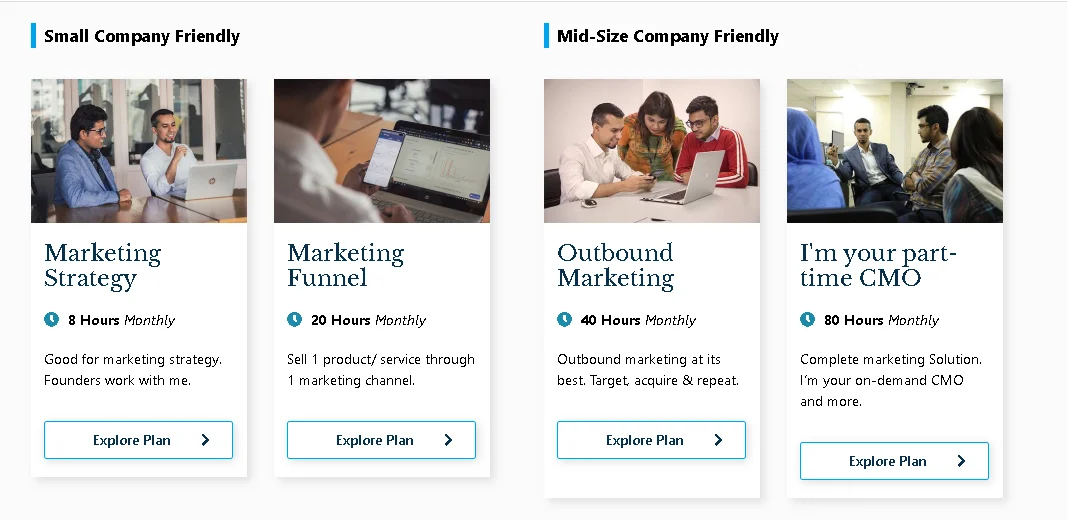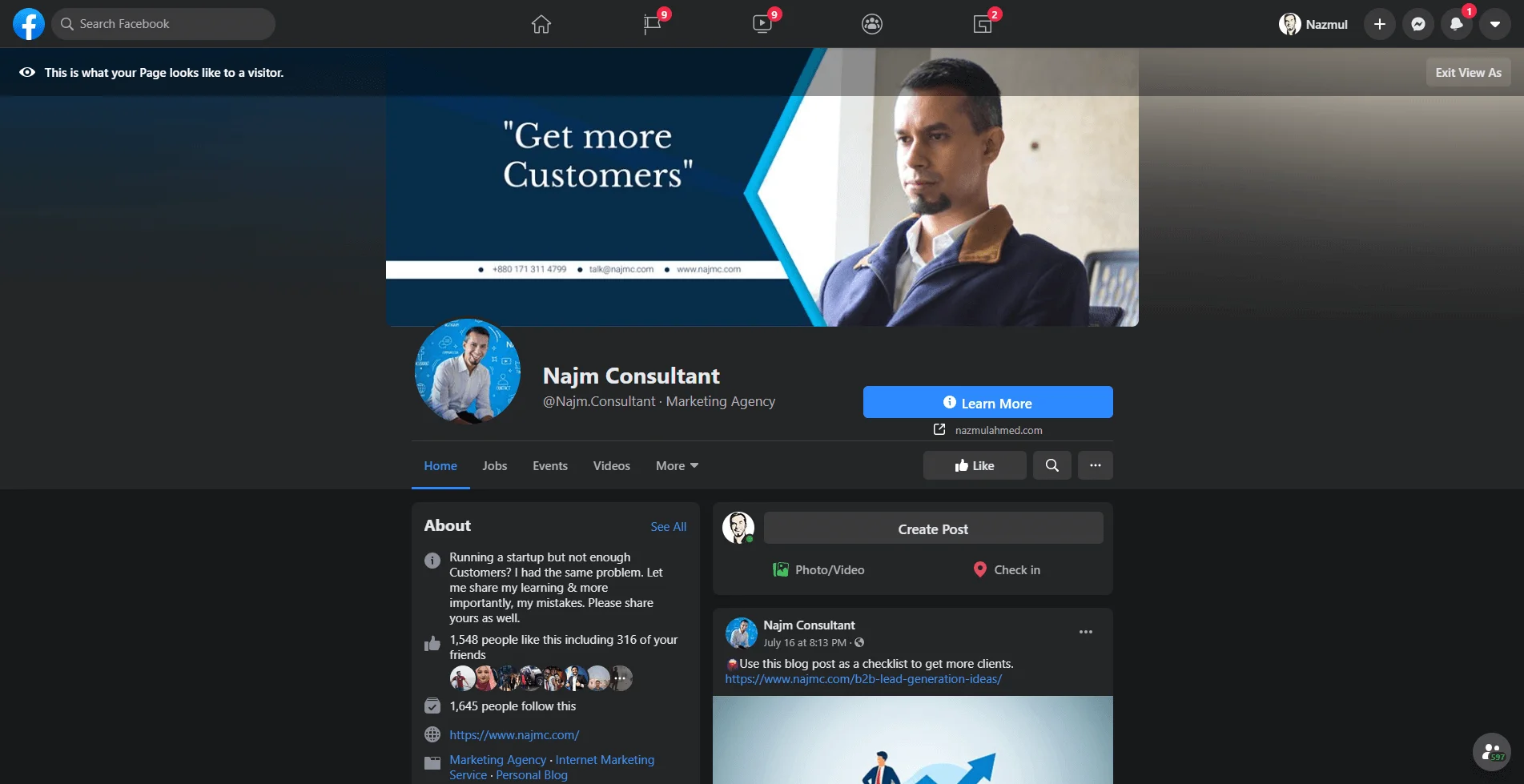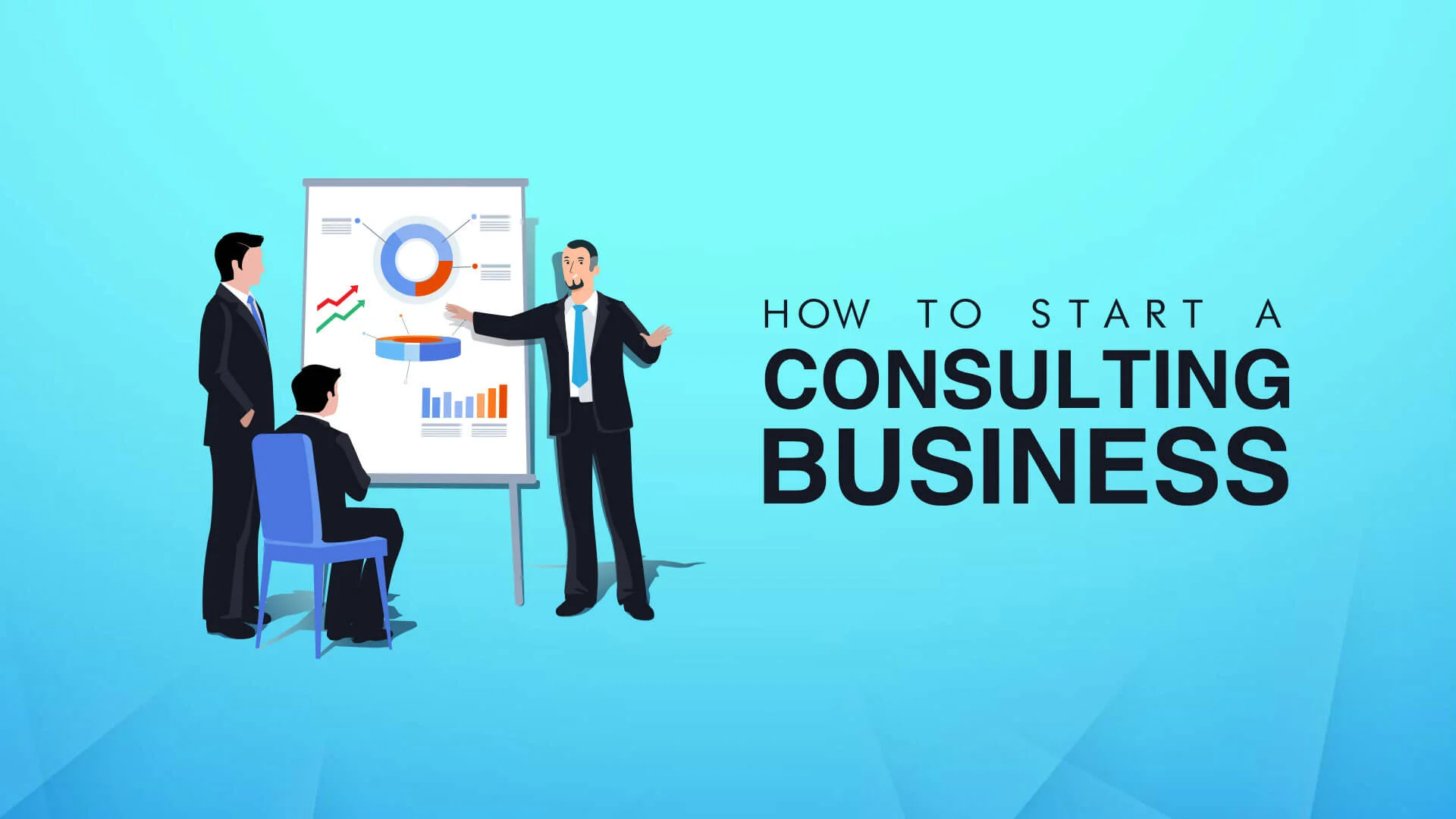Are you tired of working from 9 to 5 for someone else? Want to start something you are passionate about and for yourself? Then, my friend, a business is the right opportunity for you.
But a business has its downsides as well. Building something from scratch is not easy and you may not be comfortable starting from zero again.
If you are not comfortable with starting a business from the ground up, a consulting business can be for you. In a consulting business, you do not start from scratch- your expertise is your asset. It is also profitable as demand for consultants are needed in fields as diverse as marketing, finance, accounting, legal, and technology.
More importantly, a consulting business has its own sort of immaterial reward- you are helping someone with your skills. The desire to help struggling startups and businesses to bring customers has made me decide to use my experience as a founder and CMO to become a marketing consultant. And if your passion is also to help someone with your expertise, skills, and knowledge, consulting is just for you!
This blog post will help you take the first steps in starting your own consulting business. So let’s get started!
What does it mean by the term “Consulting”?
Consulting is the process of giving expert advice to people working in a specific field or niche for a fee. In other words, consulting is about helping people in a particular industry through one’s expertise.
Here two words stand out- Expert and Specific field. Consultants are considered experts as they have knowledge so valuable that others are ready to pay for it. They also work in a specific field so they know the ins and outs of the business very well.
Businesses hire consultants for a lot of reasons- solving a problem, improving operations, or running a project. They provide an outside perspective to the business that needs it very badly.
What Does a Consultant Do?
We think consulting is all about providing advice. But consulting is more than that. According to a Harvard Business Review article, a consultant’s role includes:
- Providing information to a client.
- Solving a client’s problems.
- Making a diagnosis, which may necessitate redefinition of the problem.
- Making recommendations based on the diagnosis.
- Assisting with implementation of recommended solutions.
- Building a consensus and commitment around corrective action.
- Facilitating client learning—that is, teaching clients how to resolve similar problems in the future.
- Permanently improving organizational effectiveness.

The first five functions are normally expected of consultants. The rest three are by-products of the previous five roles.
How to start a consulting business?
Going from a regular nine to five job to a consulting business can be very tricky. There are a lot of questions you might ask yourself: “How to start?,” ”What skills do I need?,” “How to market?” etc. Worry not. Follow these six steps and you can start your own consulting business in no time.
1. Define your niche
You do know the classic proverb, “Jack of all trades, King of none!” Will you not choose someone who’s GREAT at one thing than someone who’s GOOD at many things? Won’t you want a specialized doctor over a generalist doctor for any disease?
Business consultancy is also about being the King rather than Jack. Businesses pay a hefty fee to consultants. And they would want assurance that the consultant is deserving of the price. When you are a specialist, that is a King, in your field, you will be able to give your client businesses that needed confidence.
Specialists are thus more qualified than generalists to provide consulting services. They can stay ahead of the competition and charge higher prices. They can do this because their specialty helps make them appealing to prospective clients.
To be a specialist, you need to define a specialized field or “Niche” of your own. The niche can be in an area you already have experience in, or you find challenging and fun to do.
- How to Define your niche?
If you are finding it hard to define your niche, try answering the following three questions:
- What industries are you familiar with? Select four to five sectors you have previously worked in and have experience. Or select some niche industries you have always desired to work in.
- What does the market need and want? Find out the market needs and wants of your selected industry not yet served by existing businesses. The fulfillment of the unserved obligations can be the basis for your niche.
- What skills do you already have? Take a self-assessment of your skills and expertise that you can use to solve the unserved needs of your selected industries.

Answering all these questions will help you find a niche in an industry where you can use your skills and expertise to solve an unserved need.
2. Get the skills you want to provide
You have defined your niche. So you know the market and what it wants. You must also know the skills required to fulfill the wants. If you do not possess the necessary skills, then learn those skills.
Depending on the industry you choose, you might need to get yourself certified or licensed before becoming a consultant. So you might need to work on that as well.
- How To be skilled for a Consulting Business
You might already be an expert in your chosen niche. But you might need additional skills as a consultant as well. Some of these skills are public speaking, training groups, problem-solving, data analysis, and visualization.
These skills are essential for you to succeed as a consultant. So get yourself trained in these areas, and you can have a smoother experience as a consultant.
Figure-3 Skills required by a consultant
One more thing. Since you are planning to start a business of your own, you will need to know about certain things like writing a business plan, managing finances, and maintaining operations. Upskill yourself in these areas and know a thing about all the legal and financial requirements of starting a business.
- Where to get study materials
Thanks to the internet, you can find any resources online. Articles, videos, and even online courses are present on topics and skills related to consulting. Just Google and you can start learning from anywhere anytime.
If you are someone who prefers learning from books, here are some books to help you:
- 101 Ways to Succeed as an Independent Consultant by Timothy R.V. Foster
- 138 Quick Ideas to Get More Clients by Howard L. Shenson
- The Business Plan Guide for Independent Consultants by Herman Holtz
- The Complete Guide to Consulting Contracts by Herman Holtz
3. Billing
Now comes the most crucial part for your consulting business: determining the fees for your clients. If you charge too much, companies will not be interested in working with you. But if you price too little, you will have problems meeting your needs and can be perceived as suspicious by your clients.
But whatever you charge, you must make sure that your pricing will help you grow your business. To ensure that, the following are some considerations:
- Industry standards
- Expected working hours
- Operating costs
- Unexpected expenses
- Your experience and expertise
Here are some strategies you may follow:
- How much does a Consultant charge?
The minimum fee consultants charge is based on their operating costs. So start by taking account of the cost of running your business. Also, take into account any unexpected expenses that you may incur.
Some costs you may want to include are:
- your brand design (logo, business cards, and website)
- any license or permit fees
- deposits and rent for a physical work location (if you plan to lease your workspace)
- necessary infrastructural costs like phone and internet service, scheduling and invoicing software, etc
- marketing and advertising costs
Operating costs are just the start. You want to make a profit, don’t you? So account for your expected profit into the pricing as well.
- Analyze the market and your skill for setting your rate.
Your prospective clients will also search for competing businesses when they search for consultants. The price offered will be a consideration for every one of your clients. So you need to analyze the competition to set your rate.
Moreover, if you remain completely unaware of what your competitors are charging, you might not make profits for charging less or not make sales for charging more.
Alongside analyzing the competition, you should examine your skills as well. If you believe your skills can provide your clients with more value, you should charge more than your competitors.
- Hourly rate
The hourly rate is the most common pricing method adopted by consultants. Clients pay for the amount of time (i.e., number of hours) they work with you. The rate is determined based on your expertise.
For the hourly rate to work, you and your clients need to keep track of time. You also need to prepare yourself for queries by your clients if the job takes longer than usual.
One important thing to remember is that when you charge an hourly rate, your clients expect you to provide services worth the price. So if you charge 5,000 takas per hour service, make sure you can provide such a 5,000 takas worth of service.
- Provide retaining service
If you are going to provide an ongoing service to your clients, like bookkeeping or website management, a retainer fee is ideal. A retainer fee is a fixed fee that is charged weekly or monthly. It is much like what an employee of a company regularly gets as his/her salary.
A retainer fee can be significant for those starting in the consulting world. As you can get fixed monthly income, you can build up your cash reserve from such retaining services.
However, some clients may make contracts that will prevent the consultant from offering similar services to other businesses. So be careful when providing such services.
- The pricing structure for different package and business
You might want to offer various services to clients based on how much they are willing to pay. Create different packages with each containing a set of services you are going to provide under it. Also, set the number of hours you are going to work under each package.

Set the price according to the number of hours and the packages you are offering. Again, competitors’ pricing can help you understand an acceptable pricing range for your provided packages.
4. Start building your consultancy business
The next step is getting your consultancy from paper into reality- building your business. At this stage, you need to build the foundations and external components of your business to have an identity that everyone can recognize. The things you need to do here include developing a website, having social media presence, marketing, and meeting legal requirements. We go to each of these stages in this section.
- Create a website
A website is your brand ambassador in the online world. It gives your business credibility and legitimacy. At the same time, prospective clients can know about you as most people do their research online before deciding to buy anything.
To create a website, use platforms like WordPress, Squarespace, and Wix to create professional-looking sites. You can also hire a professional web designer to create the site if you can afford it.
For branding, here are some tips for designing your website:
- Use your brand colors.
- Feature company logo.
- Create a marketing copy with your target audience in mind.
- Showcase your consulting style in the content.
You can also share client testimonials and case studies on your website—more of this in a later section.
- Building a social media presence
Social media is both an inexpensive and easy media for branding and networking for your consultancy. A presence there will help prospects know about you and your business through the content you post and share there.
There are a lot of social media networks out there. Each has its own advantages. So don’t hesitate to join all of the major networks out there. Do some trial and you will soon find out which social media works the best for you.
- Facebook is best for connecting with like minded groups
- Twitter is great for communicating with clients and peers
- LinkedIn is the ultimate platform for making professional networks
- Instagram helps to showcase your portfolio visually

Figure-5: Social Media Presence
Become an engaging though expert by sharing industry related information and your insights in these social media platforms. Engage in discussions through commenting on others’ posts and replying to people’s comments on your ones. Establish yourself as a reliable, trustworthy source of information and analysis in your field.
Use social media management tools like Buffer, SproutSocial, and Hootsuite to schedule your posts ahead of time. This way, you can continue working on your work without needing to step aside time to post in an optimal time. But do check in your accounts at times to see engagement and activities there.
- Create your own marketing team and SOP
You don’t have a consulting business if you do not have clients at all. This is why it is important for you to do marketing. But a consulting team may not be the same as selling cars or houses. You may need to sell to clients who don’t even know that they need your services.
If you cannot afford much time for your consultancy’s marketing, you might need to hire people to do that. You might need people who are good at blogging, SEO, social media management, and copywriting.
You also need to create a standard operating procedure (SOP) for structuring your work. You need to ensure the SOP is made in such a way for you to commit to. A good SOP will ensure that you do not need to start over every time a new project or client enters into contract. To have a good SOP, you can create templates related to:
- Proposal
- Set of onboarding questions to ask your clients
- Description of services
- Monthly/project fees
Be specific when you communicate your SOP. Clearly mention the scope of your work, your responsibilities, and the costs involved in your work.
- What registrations and licenses do I need?
Your business can be legitimately identified as one if you complete all the legalities involved in establishing one. A legal business not only gives you a legal identity but gives you credibility as well.
You need to decide whether you want to start a sole proprietorship or a Limited Liability Company (LLC). It depends on your vision for your consultancy. Each structure has its own tradeoffs- a sole proprietorship means you need to file your profits and losses in your personal tax returns while a LLC will involve double taxation.
Whatever legal status you choose, a legal identity will set the course for your business at the time of staffing, taxing, and other legal aspects.
5. Grow your client Base
Your consultancy will only grow if you have a steady flow of new and existing clients. So you need to spread the word about your business to the rest of the world. Besides branding, do the following in order to grow your clientele:
- Network both online and offline

Networking allows you to communicate with those in your field, keep in contact with key stakeholders, make yourself available to prospective clients, and pursue introductions that will help your company progress. If you meet someone at a professional level, find some way to connect to them.
Participating in industry events – even hosting your own event – is an effective way to forge new connections and pitch new customers. Participation in online communities, relevant conferences and sharing social media advice can go a long way in building up your expertise. In addition, outreaching on LinkedIn or capturing email addresses of site visitors can help you get qualified leads!
After networking activities, you might want to share contact details. If you make personal appearances, be sure to bring business cards and brochures in case the other person might like to know more details regarding your services. Email a follow-up note, or use networking websites such as LinkedIn. You never know who you would like to reach out to later, and online platforms make it simple to locate others, no matter when you meet them or where.
- Attend public speaking events
Another perfect opportunity to attract potential customers and gain a reputation for quality in your community is public speaking. Try to speak at the local chamber of commerce or Rotary Club. If your community does not have such, you can volunteer to speak at luncheons, dinners, and other special occasions.
Make a group of organizations that hold frequent meetings and might need guest speakers. Volunteer to offer your public speaking service at these meetings.
- Utilize your old and current clients for getting referral clients.
Referral is an underestimated method of getting new clients. It is also one of the easiest as well.
When you’ve finished your consulting task and your client is in cloud nine (and most probably singing your praises), now is the best moment to ask for a referral! . Just give a notice or a brief letter seeking the names of any bosses, acquaintances or business partners that they believe might be good candidates for your consultancy services.
When you write to the people whose names your clients pass on to you, ask for their permission to mention the client’s name. Often what it takes to gain the interest of the prospective customer is to have a common acquaintance or a trusted business partner.
6. Develop your personal brand: Your name is all to convince a client
Personal branding is one of the first to-do things for building your own consultancy firm. It is a valuable tool to develop authority and professionalism and create a long lasting impression in the minds of your clients.
Websites and social media are great tools to develop personal branding. Developing a portfolio is another great way to show you are a bigshot in the industry.
- Develop a portfolio
A portfolio says volumes to prospective clients. Good copies and testimonials may help you market your product, but portfolios show your efforts in reality and make your buyers realize your talents if you work with them. Portfolios can also save you significant time by sorting out bad-fit consumers.
Showcase the best of your works as your portfolio. You can show it on your website or mail them to prospective clients. In addition, you can develop a portfolio in the following sites based on your expertise:
- Writing, journaling, and content creation: Medium, Blog sites
- Designers, photographers, and graphic designers: Instagram
- Programming: Github
Conclusion
Consulting can be a rewarding experience for anyone wishing to get out of a regular salaried job. If you have what it takes to be a consultant, follow the steps above and help businesses achieve success!






